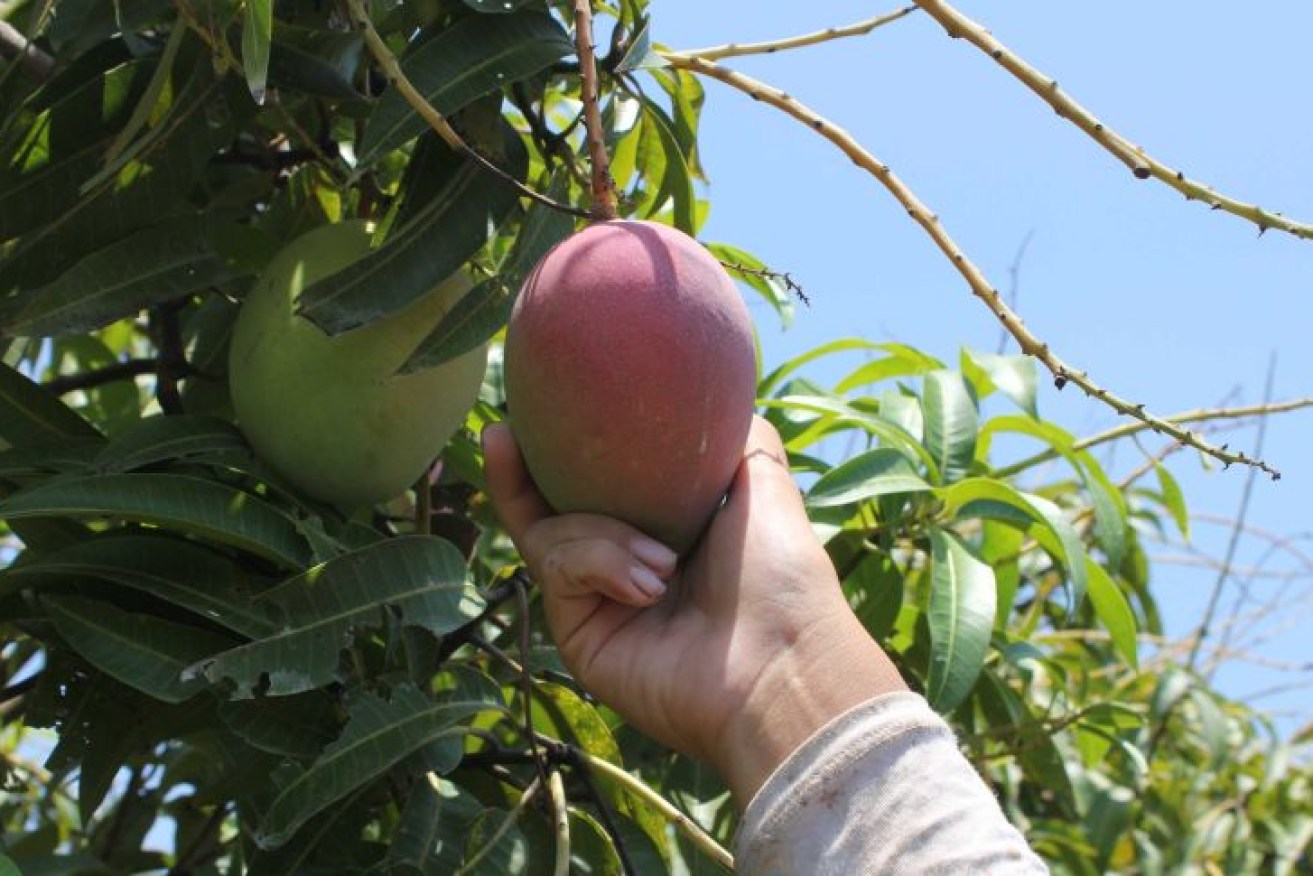Farmers look to retain piece rate work despite union push for minimum award wages

Farmers say productivity can be affected if the pay balance isn't right. Photo: ABC/Emilia Terzon
Farmers are pushing back against union moves to see minimum wage rates granted to fruit pickers and seasonal workers.
The Australian Workers’ Union (AWU) announced on Wednesday that it would apply to the Fair Work Commission (FWC) to have the horticulture award amended to ensure workers received the minimum casual wage of $24.80 an hour.
AWU national secretary Daniel Walton has told the ABC that growing evidence of systemic underpayments through the use of shady labour-hire firms showed minimum conditions for workers needed to be nailed down in law.
But farmer advocacy group FNQ Growers said putting a floor price under the piece rate — in which workers are paid according to the amount of fruit or vegetables they pick — effectively made it the same as an award rate.

Joe Moro is questioning proposed changes to the horticulture award. Photo: Facebook
FNQ Growers president and mango grower Joe Moro said many farmers preferred paying piece rates.
“At the end of the day, the whole idea of the piece rate is to reward the most efficient workers you have with higher pay and the inefficient ones get less pay,” Mr Moro said.
“So to put a floor rate would defeat the purpose of having a piece rate … so we wouldn’t support that.
“I get asked that very often on the mango farm — that [workers] would prefer to be on a piece rate because they’re faster than another guy and whatever.
“I think that it’s part of what people expect when they go and work on farms, that there are these different options.”

Farmers say piece rates reward faster workers. Photo: ABC Rural
Industry consultation required
Citrus Australia chief executive Nathan Hancock said industry should be consulted if there were going to be changes made to the horticulture award.
“I’d have to see the detail of this, but we wouldn’t want to see any changes that took away productivity,” he said.
Mr Hancock said if the pay balance was not right, efficiency on farms could be affected.
“I think a lot of the issues that we see reported are generated through poor behaviour in the labour hire sector.
“I’m not tarring everyone with the same brush, but when we have a situation where the states have different or no regulation around labour hire companies, we have gaps and loopholes that can be exploited.
“I think the way to address this is through a national labour hire licensing scheme.”
Despite the AWU saying compliance and exploitation was “off the charts” in the horticulture industry, Mr Hancock was cautious.
“There are many, many people out there working happily in horticulture and on farms, working both at an hourly rate or the piece rate, and they keep coming back because they’re getting paid properly,” he said.
“In fact, they’re getting paid very well.”
Di West, a small strawberry grower on the Sunshine Coast, employs around six permanent staff and 120 seasonal workers in winter and spring.
She believes a minimum pay rate would be an unfair burden on farmers and directly result in price rises for consumers.
“If I see someone that comes along, and they’re not really interested in working and they’re just there to tick a box for their obligations with their employment services or whatever, then I don’t see why I should have to subsidise them because they don’t have any enthusiasm,” Ms West said.
She said it took up to three weeks for new workers to get up to speed, and questioned why employment services were paid so much to place people in jobs.
“There’s lots of billionaires in the employment industry,” she said.
“We get to shoulder all the risks in employing someone and the expense.
“If the unions want to have a minimum wage, we need to make sure there is some kind of (government) assistance with training, and we need to take those employment service agents out of it so the rewards are kept in the industry and not paid to foreign companies.”

Di West says a minimum pay rate could burden farmers and raise prices for customers. Photo: ABC Rural/Jennifer Nichols
Ms West said that with the piece rate, faster workers were earning more than $40 an hour, and she had rewarded promising new workers by topping up their pay until they got up to speed.
“Where I see enthusiasm and effort, I definitely reward that,” she said.
“By mandating that we have to pay that to everybody, they take away that incentive for people to work really hard and to put in a good show.
“Most people, you have to go to uni, you have to go and do a trade, you have to learn this skill before you get paid the full money, so I don’t see why anybody with zero training should be paid full rate straight away, because all that does is create really massive inefficiencies.”
-ABC








